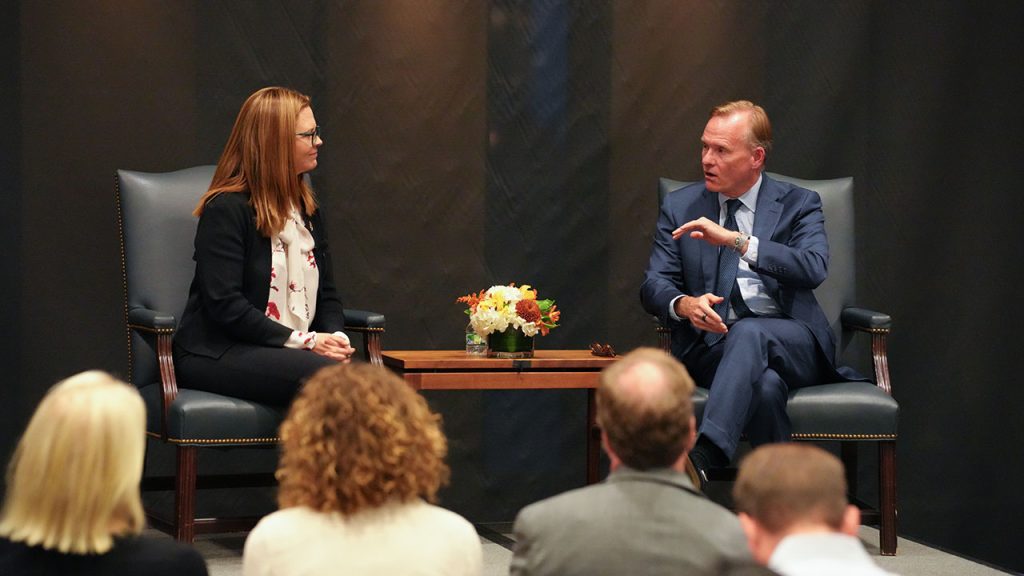CBS News senior correspondent John Dickerson made an impassioned case for preserving a culture of conversation, even between those with whom we have vehement disagreements.
“If we don’t have healthy political discourse, then we don’t have a healthy democracy,” he said on Sept. 24 at Fordham’s Lincoln Center campus.
“America is founded on ideas that require debate and refinement that comes from talking, from arguing.”
In a lecture and Q&A with Fordham President Tania Tetlow, Dickerson laid out the structural reasons Americans are engaging less with each other on controversial topics.
The event kicked off Fordham’s FitzSimons Presidential Initiative on Civics and Civility, a year-long project of education and engagement created as a model for respectful dialogue and cooperation among Americans.
The Gold Standard from the ’80s
The reason political discourse feels unproductive today is because the country’s political climate has shifted dramatically, he said.
In the 1980s, the relationship between President Ronald Reagan and House Speaker Tip O’Neil became a gold standard for bipartisanship, as Reagan, a conservative Republican, and O’Neil, a liberal Democrat, worked together on issues such as Social Security.
That was only possible, Dickerson said, because, in 1982, voters in 85 House districts sent a Democrat to Congress and yet also voted for Reagan for president. To satisfy these “Reagan Democrats,” O’Neil and Reagan needed to work together. The number of districts where this kind of “split ticket voting” takes place has since plummeted to just 16 in 2020.
He pinned the blame on “money, movement, and media.” In 2012, it cost an average of $500,000 to run for a House seat and $11.4 million to run for a Senate seat. Today, it costs $2.7 million for a House seat and $26 million for a Senate seat. Since outrage fuels fundraising, candidates have no incentive to keep the discourse civil.
Fewer Politically Diverse Counties
Meanwhile, Americans have continued to move to communities where political leanings are more homogenous. In 1976, 25% of them lived in counties where one political party consistently won landslide victories. Today, that number has increased to 58%.
“So in these kinds of counties…the political contest doesn’t then become between two parties,” Dickerson said. “It gets fought in primaries. It [becomes a fight]among the people of the same party. And that tends to lead opinions in the party over to … the more extreme side.“
Finally, he said, mobile devices have made it difficult for people to take time to think in a nuanced way about complex issues.
‘Give Space and Grace’
To solve the problem, Dickerson recommended that Americans recognize the ways the current system is designed to keep us in conflict with each other. That means checking yourself to make sure you aren’t disagreeing with somebody because your peers are driving your response.
It also means placing a premium on freedom of speech, the value of asking why when we are unsure of ourselves, and prioritizing understanding over knowledge.
“So give space and grace to those you disagree with. Listen, restrain judgment, and don’t pile on.”
Watch the full lecture and conversation.

